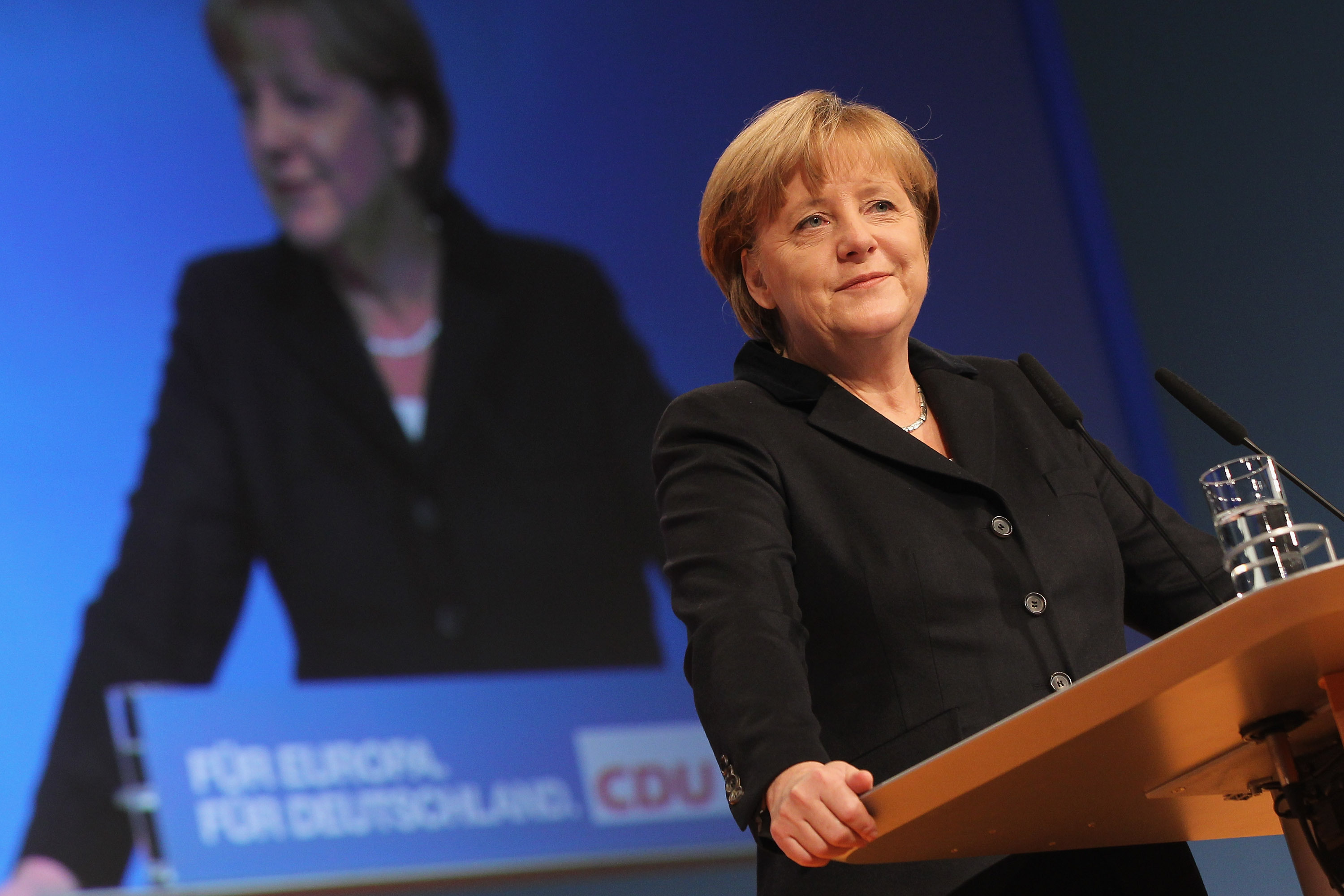 The British government is becoming ever more gloomy about the prospects for the euro,
believing that Angela Merkel will not do what she has to if the single currency is to survive: namely, let the ECB intervene massively in the markets. Whether it’s because of Germany’s
inflation-scarred history, or the hope that market pressure will force reforms in many European states, the Chancellor is holding back. And, it seems, she is getting more and more popular by
sticking to her policy.
The British government is becoming ever more gloomy about the prospects for the euro,
believing that Angela Merkel will not do what she has to if the single currency is to survive: namely, let the ECB intervene massively in the markets. Whether it’s because of Germany’s
inflation-scarred history, or the hope that market pressure will force reforms in many European states, the Chancellor is holding back. And, it seems, she is getting more and more popular by
sticking to her policy.
Mrs Merkel’s popularity is, indeed, related to her handling of the Eurocrisis. In Germany she is seen as having shown the kind of leadership people want, and the recent CDU party conference
cemented her status.
But there is more the Merkel’s bounce than that. Just consider the latest poll numbers. Merkel’s CDU/CSU are hovering around 31 per cent in Forsa surveys, while the centre-left SPD are at 27 per cent. The Greens are polling at 16 per cent, while the Free Democrats (FDP) are on 3 percent — below the 5 percent threshold needed for seats in parliament. And this is key. It means there is little chance of the CDU/CSU-FDP coalition holding power beyond 2013. The most likely outcome would be a grand coalition of CDU/CSU-SPD, with a CDU/CSU-Greens coalition the second most likely result.
So German politics is moving leftwards — and the Chancellor has followed. She moved to close Germany’s 17 nuclear power plants — which generate one-quarter of the country’s electricity — by 2022, following the partial nuclear meltdown at the Fukushima Daiichi plant in Japan. Against opposition in her own party, she has decided to end military conscription. And, finally, the CDU has committed to implementing the minimum wage.
These left-wing policies are not only putting her in a strong position for after the next election, but are also making her more popular. Her stance on the euro is only part of the story.







Comments